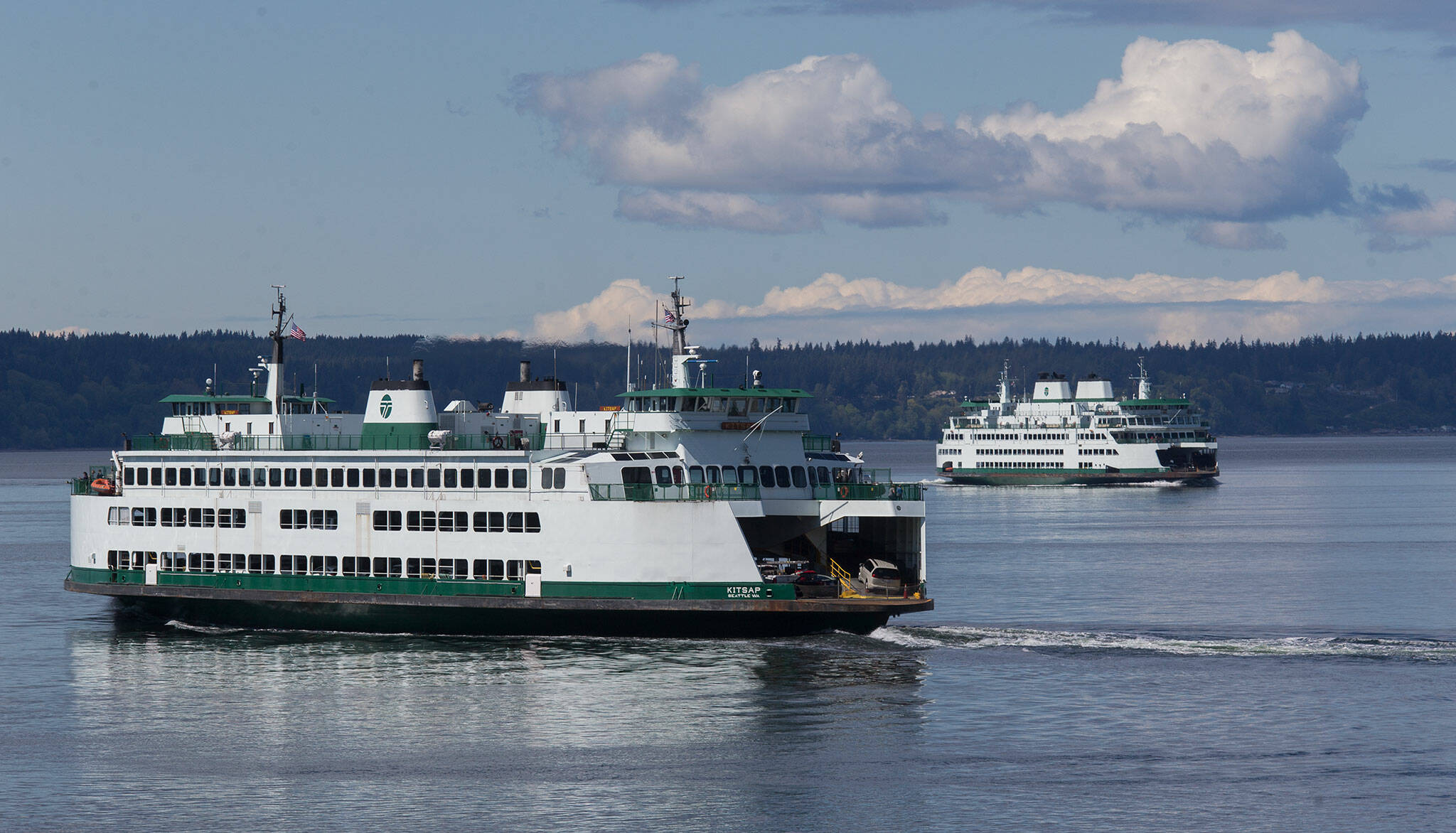Countless canceled sailings, hours of waiting and hordes of disgruntled customers are just a few consequences of a ferry system crippled by a lack of employees over the weekend.
The massive gaps in service for Washington State Ferries began Friday. Ian Sterling, a spokesperson for the ferry system, said over 150 sailings were canceled systemwide on that day. With another 120 sailings canceled the next day, things weren’t looking much better on Saturday, either.
“To see that level of missed sailings is way beyond what we see in a typical year, or in a few years,” Sterling said.
The Mukilteo-Clinton route was one of the passages to keenly feel the pinch, since it operated on one-boat service from Friday morning until Sunday night.
Joan Kiefner, who braved the ferry Saturday, said it took her five hours to go from Seattle to her home in Clinton, the majority of which was spent waiting in line for a boat.
“I’m lucky, my schedule is flexible,” she said. “But I would hate to have to rely on WSF for work or medical emergencies.”
The shortage of crew members on the ferries is not a new issue, as anyone who has regularly taken the ferry this year and pays attention to canceled sailings can attest. But in recent months, the cancellations have noticeably increased. Prior to Labor Day weekend, the ferry system braced itself for workers to purposely call in sick in protest of the state’s COVID-19 vaccine mandate.
As the Oct. 18 deadline grows closer, that discontentment from state workers who are against inoculation seems to be lingering.
Sterling acknowledged that it’s possible some ferry workers who did not show up to work this weekend did so because of “unauthorized and illegal” striking action.
David Hoogerwerf, a representative for the Clinton Ferry Advisory Committee and the Ferry Advisory Committee Executive Council, previously said he had heard of coordinated efforts among employees to avoid coming into work.
“There’s collusion going on here that people just won’t talk about,” he said Monday.
But Sterling also pointed to an industry-wide paucity of mariners exacerbated by the pandemic. The ferry system also had a great number of workers retire recently, although Sterling didn’t have exact numbers.
Workers who have tested positive for the virus and quarantining of close contacts on staff have added to the workforce issue. Sterling said that throughout the pandemic about 400 people have had to quarantine because of direct exposure to COVID.
Sterling said “a handful” of workers were either COVID-positive or quarantining over the past weekend.
As of Friday, 87% of State Ferries employees were fully vaccinated and compliant with the state mandate. Sterling said on Monday that figure was reaching 90%.
On the downside, he confirmed that more than 200 workers were not compliant on Friday. Since then, the vaccination paperwork has come in for 16 more individuals.
“The question is, are there people having trouble with the technology or are they willfully putting this off to the last second?” Sterling said. “Unfortunately, we just don’t know.”
The governor’s mandate requires workers to be fully vaccinated by Oct. 18, which means they needed to get a second dose of Pfizer or Moderna vaccines or the Johnson & Johnson shot by Oct. 4 or have an acceptable exemption.
Sterling said all employees not in compliance will be terminated at the end of their shifts Oct. 18.
“All signs point toward more disruption to the system until things get better,” Sterling said.



